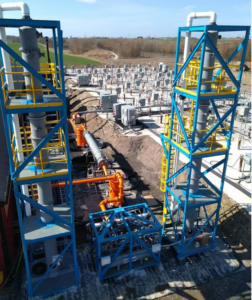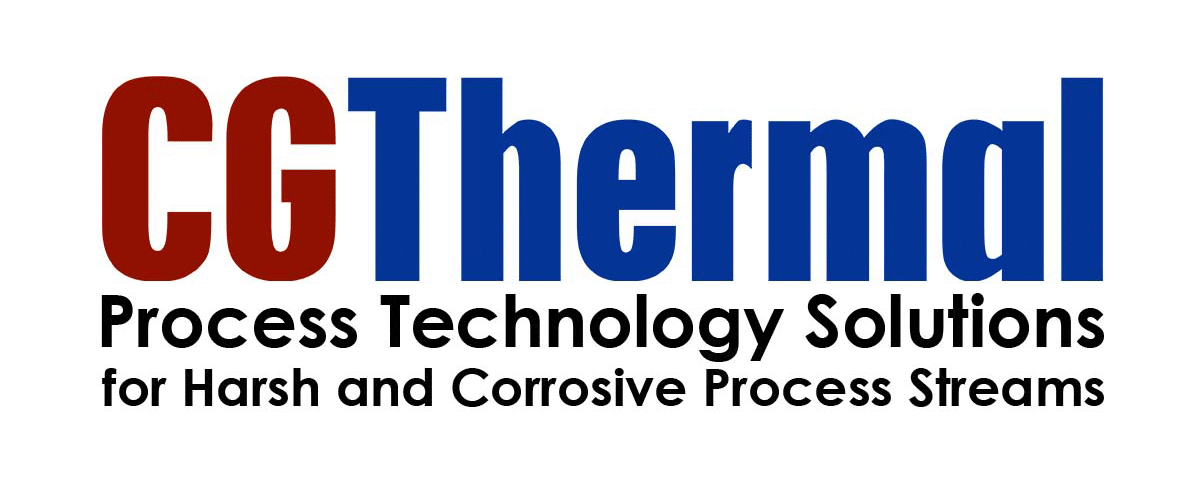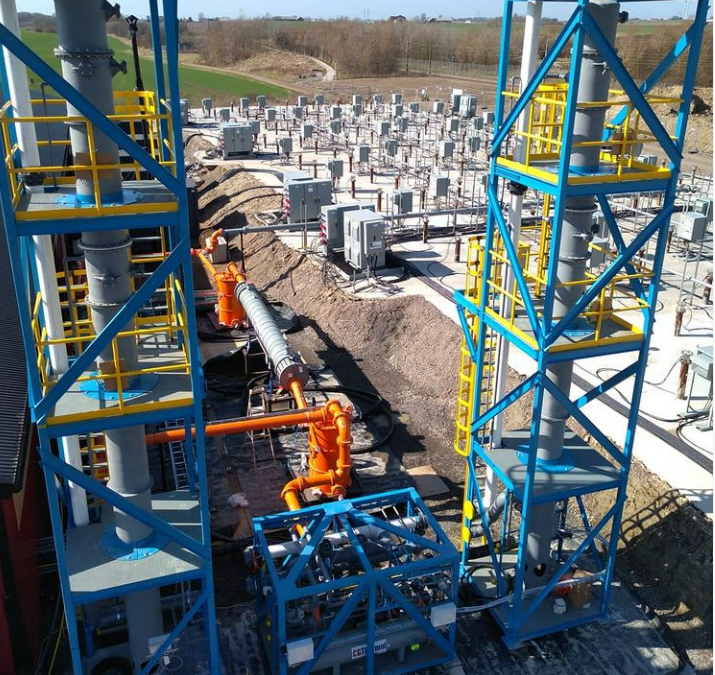Hydrochloric acid (HCl) is a highly corrosive reducing agent. It plays an important role in the steel processing and chemical industries and, due to its unique properties, the systems it is involved in require specialized safety and reliability considerations. CG Thermal provides process technology solutions developed to each customer’s specifications, with capabilities that include field service, engineered custom design, repair, refurbishment, and more.
What is Hydrochloric Acid?
Also known as muriatic acid, hydrochloric acid is a strong, colorless acid with the chemical formula of HCl. It is a compound of hydrogen and chlorine atoms, bonded by a polar covalent bond. Hydrochloric acid is developed synthetically for many types of industrial applications, and it is also produced as a byproduct of certain industrial processes. It is used in hydrometallurgical processing, electroplating, cleaning operations, chlorine dioxide synthesis, activating petroleum wells, and many other applications.
How is Hydrochloric Acid Manufactured?
Hydrochloric acid is produced by dissolving hydrogen chloride gas in water. The hydrogen chloride gas can be produced through several methods, including:
- Direct synthesis: Hydrogen gas and chlorine gas are reacted at high temperatures and pressures in the presence of a catalyst, such as iron or aluminum chloride, to produce hydrogen chloride gas.
- From salt: Hydrogen chloride gas can also be produced by heating common salt (sodium chloride) with sulfuric acid.
- From organic compounds: Hydrogen chloride can also be produced by the combustion of organic compounds, such as chlorinated hydrocarbons or chlorinated methanes.
- Silica: Hydrogen chloride can also be produced as a co-product of the silica manufacturing process.
Once the hydrogen chloride gas is produced, it is then dissolved in water to create hydrochloric acid. The concentration of the acid can vary depending on the intended use, with concentrations ranging from around 5-35%. The vast majority of hydrochloric acid is derived from the chlorination of organic chemicals, and much smaller amounts come from other processes.
Chemical Processing Industry 
In the chemical processing industry, chemical compounds are developed by combining multiple chemicals to create a reaction. These converted raw materials become polymers, petrochemicals, and many other products. Process chemicals can be categorized into four types:
- Basic chemicals
- Specialty chemicals
- Bio-based chemicals
- Consumer chemicals
Polymers, petrochemicals, and basic organics are all categorized as basic chemicals. Common polymers include polyamide, polycarbonate, and polyethylene while petrochemicals, such as methanol and ethylene, are derived from oil. The basic organic chemicals most commonly used include hydrochloric acid in addition to chlorine and sulfuric acid.
Chemistry of Industrial Polymers
Polymers are made of long, repeating chains of millions of molecules linked by a chemical bond. The most notable feature of these molecule chains is their large size. The vast molecular size of polymers is what creates their unique features and versatility, allowing them to be molded into a permanent shape or drawn into fibers.
Depending on the combination of polymers and the types of molecules bonded together, a material can be hard like glass, or able to easily bend and stretch. Plastic is the most recognizable type of polymer, however, the chemical processing industry develops many types of polymers to meet application-specific goals.
Uses of Hydrochloric Acid in the Industrial Industry
While there are numerous industrial applications for hydrochloric acid, some of the most common include:
- Food manufacturing: HCl is used to produce corn syrups, adjust the pH of products and wastewater, acid-modify cornstarch, and produce soft drinks, among other uses.
- Steel pickling: HCl removes scale and iron oxides from the surface of steel. This pickling process is a required treatment for steel products that undergo multiple processing steps, such as in wire production and hot-rolled strip and sheet steel coating,
- Oil well acidizing: Used to remove scale, rust, and other undesirable deposits from oil wells. During this process, the acid solution is injected into an area to dissolve portions of rock, easing the flow of oil.
- Ore processing: In mining operations, HCl helps extract, separate, and treat ore. It is particularly necessary for recovering gold and molybdenum, as well as to create tungstic acid to produce tungsten chemicals and metals.
In addition to these applications, hydrochloric acid is also used to manufacture PVC, process leather, manage wastewater, and in the regeneration of ion exchangers, among many other uses.
Why Choose CG Thermal for Hydrochloric Acid Processing Equipment
As a widely used, highly corrosive industrial acid, systems that use hydrochloric acid must be safe, reliable, and tailored to the needs of each application. With our mass/heat transfer expertise and leadership in manufacturing corrosion-resistant materials, CG Thermal designs a full range of solutions for hydrochloric acid processes with safety and reliability as our foundation. For a more detailed discussion of hydrochloric acid, visit our website’s hydrochloric acid page. You can also contact us to learn more about our products and services.


